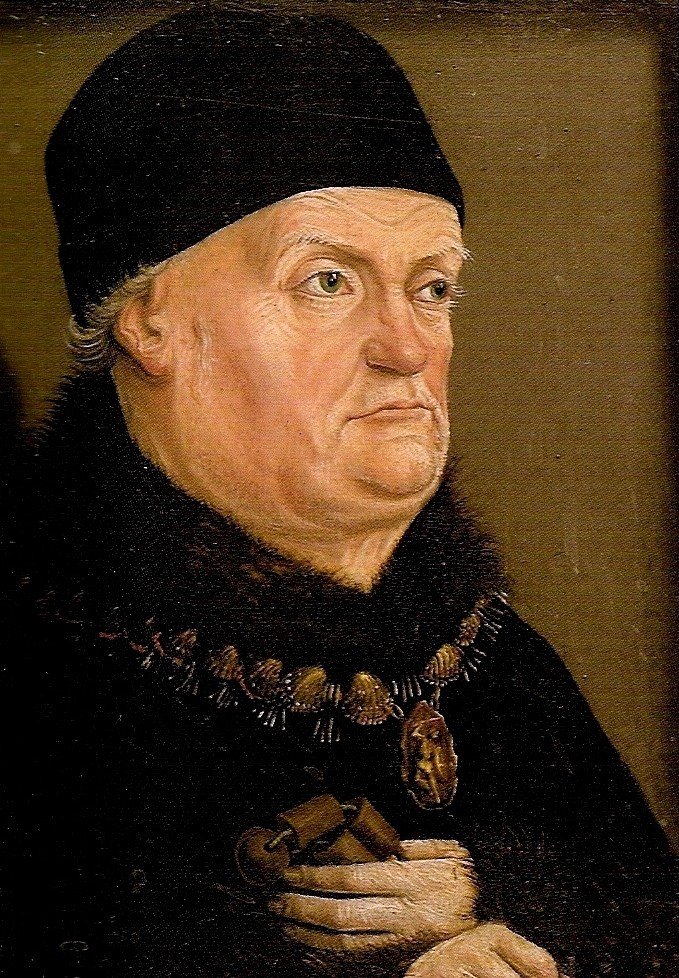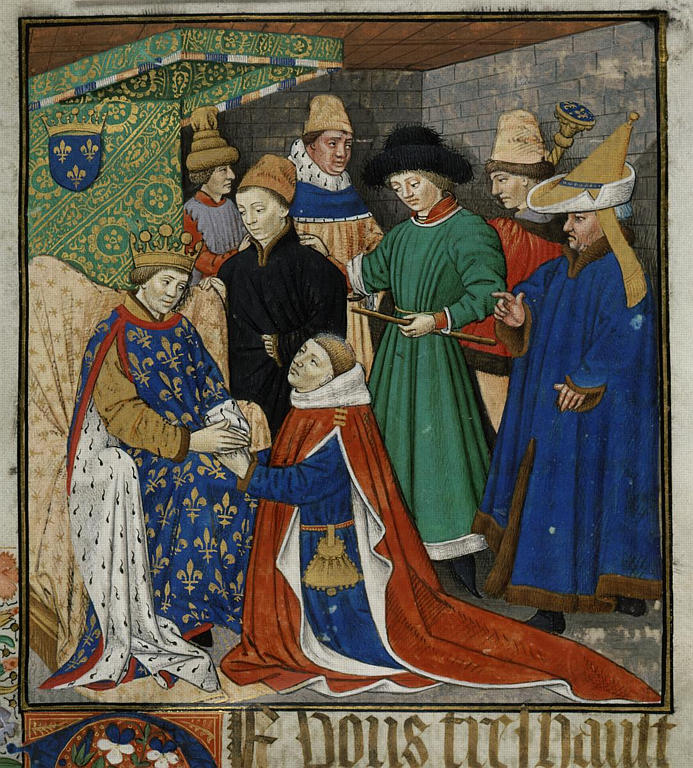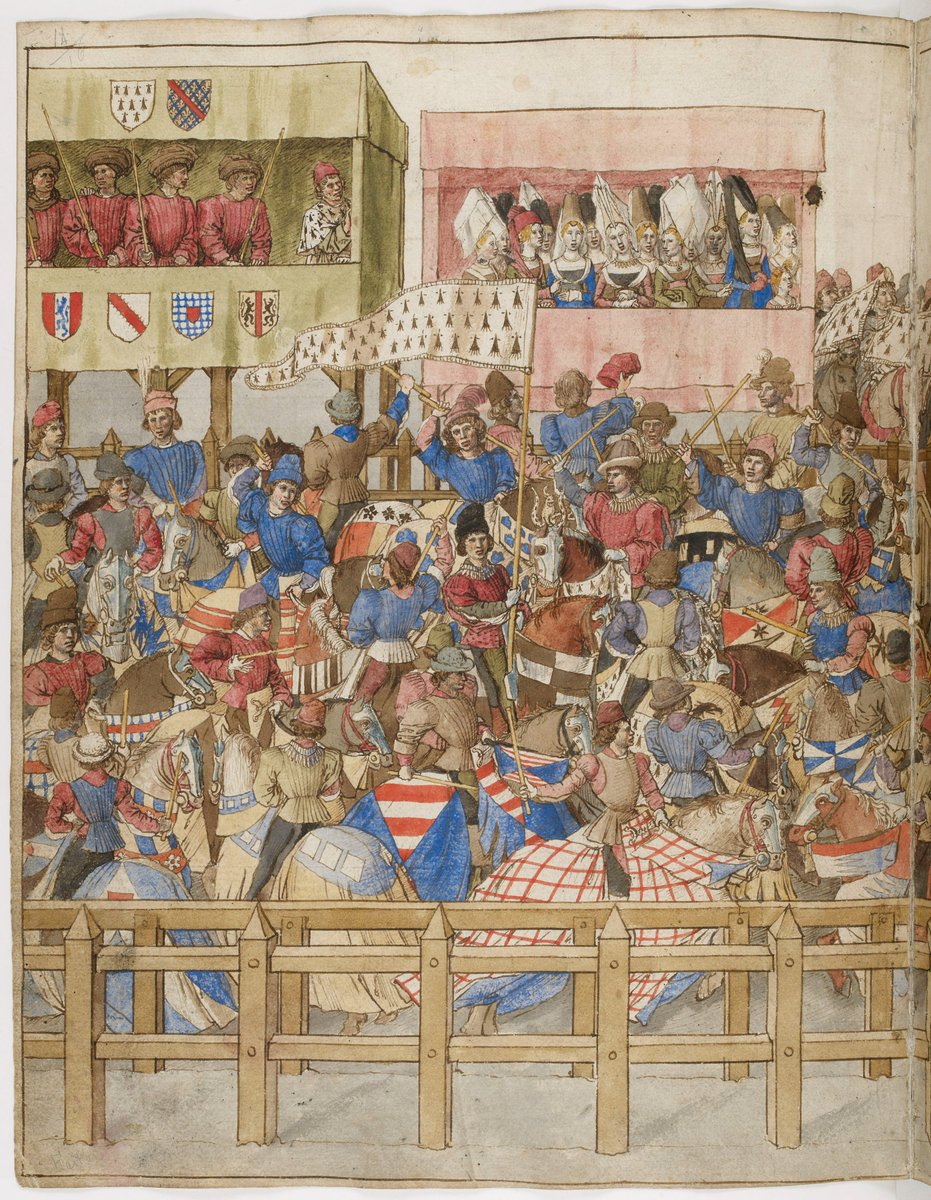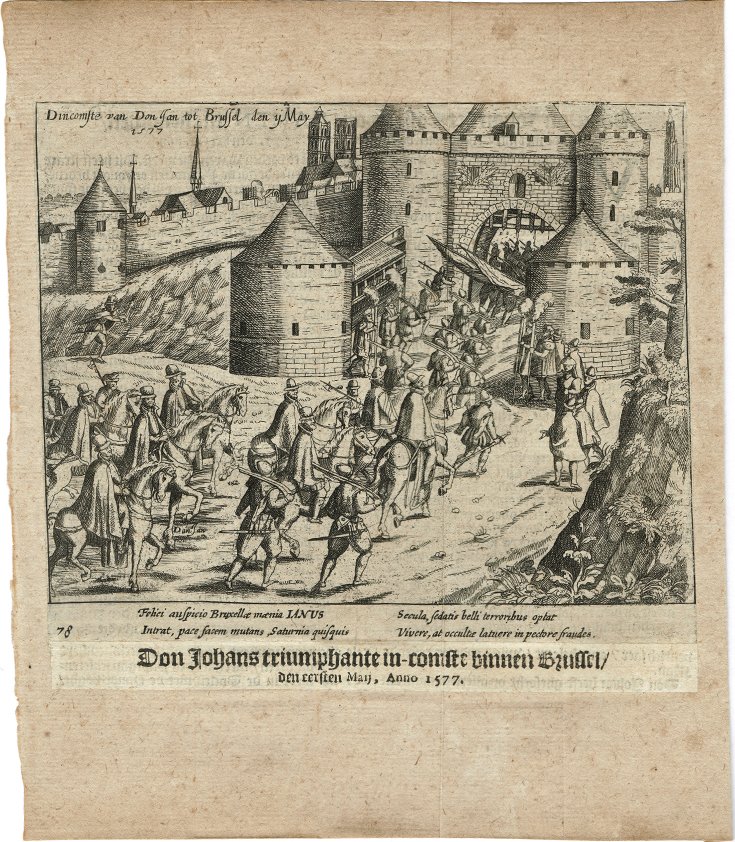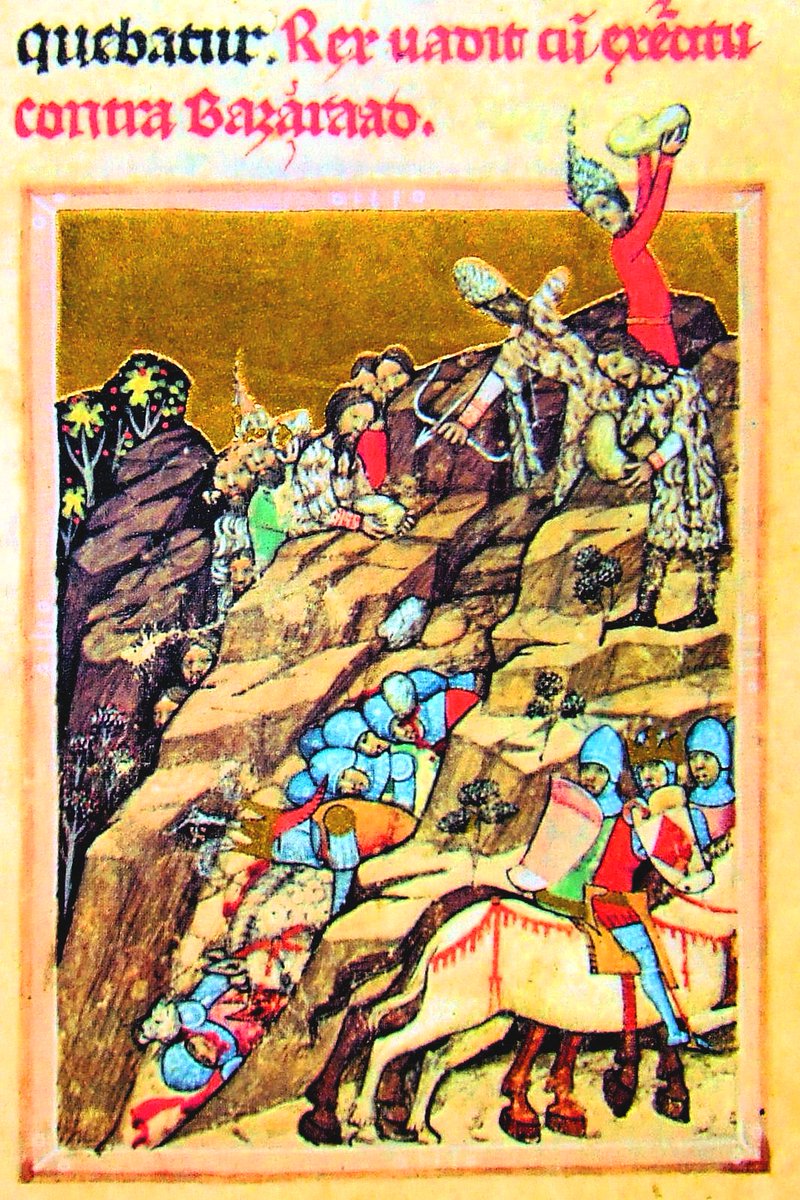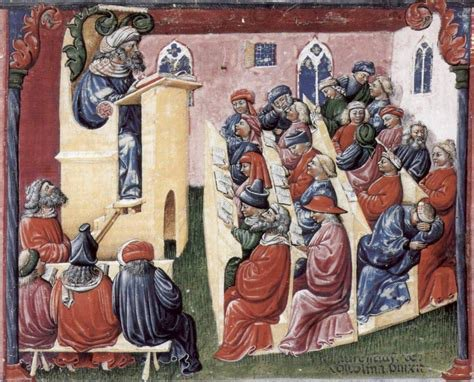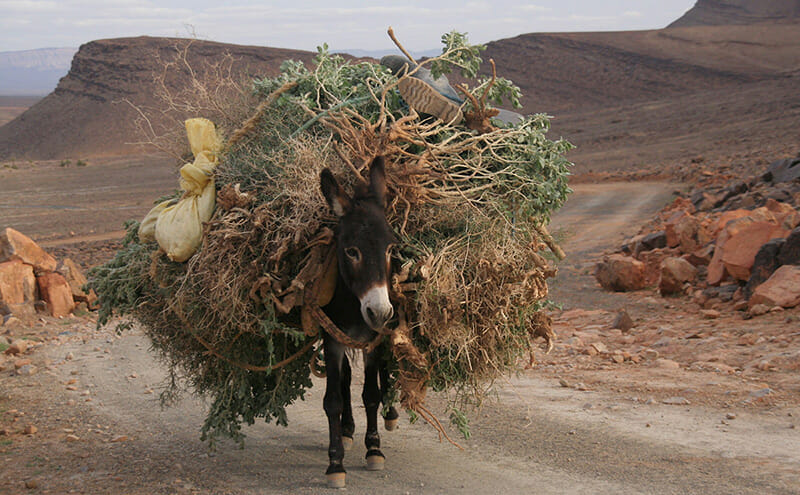
Today 2 March is anniversary of the battle of Grandson which happened in 1476.
The forces of Swiss Confederacy defeated the Burgundian army of Charles the Bold during the Burgundian Wars.
A thread on how the Swiss shocked the most feared army in Western Europe at the time.🧵


The forces of Swiss Confederacy defeated the Burgundian army of Charles the Bold during the Burgundian Wars.
A thread on how the Swiss shocked the most feared army in Western Europe at the time.🧵



The battle of Grandson happened during the Burgundian Wars, a conflict between the Duchy of Burgundy against the Swiss Confederacy and its allies.
The war began in 1474.
In 1475 the Bernese Swiss forces devastated the region of Vaud which belonged to Burgundian allies Savoy.
The war began in 1474.
In 1475 the Bernese Swiss forces devastated the region of Vaud which belonged to Burgundian allies Savoy.

That same year, the Swiss also achieved victory over Duchy of Savoy at the Battle on the Planta.
In 1476 the Burgundians would respond with a campaign against the Swiss.
A huge army was assembled and led by the Duke of Burgundy Charles the Bold himself.
In 1476 the Burgundians would respond with a campaign against the Swiss.
A huge army was assembled and led by the Duke of Burgundy Charles the Bold himself.

At the time, Burgundy was one of the most powerful states in Europe with immense wealth and a well organized army.
Charles the Bold pursued an aggressive expansionist policy which inevitably led to wars with neighbors.

Charles the Bold pursued an aggressive expansionist policy which inevitably led to wars with neighbors.
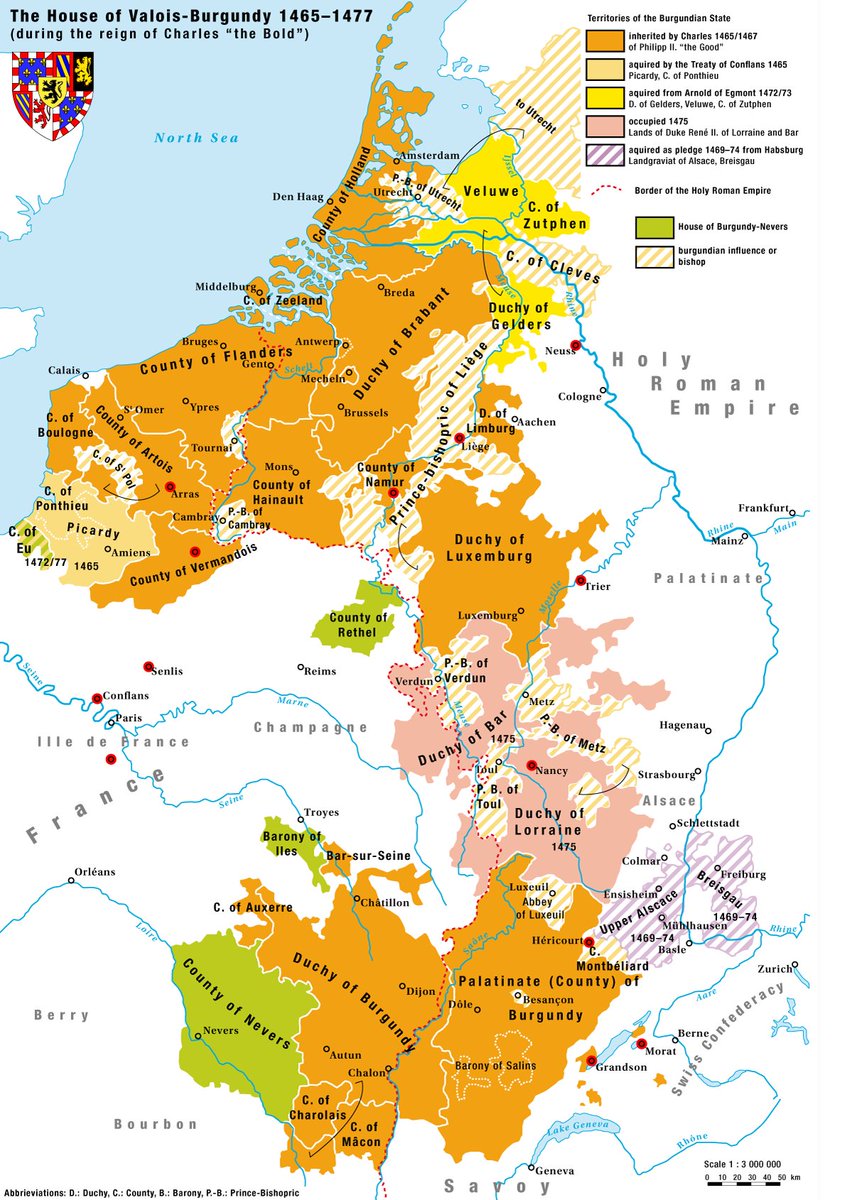

Burgundy had grown powerful during the Hundred Years' War which weakened France and England.
Ruling the old western borderlands of the Holy Roman Empire, the Burgundian dukes began to style themselves as "the Grand Dukes of the West".
Ruling the old western borderlands of the Holy Roman Empire, the Burgundian dukes began to style themselves as "the Grand Dukes of the West".

But to the Swiss Charles the Bold was "the Turk of the West", likening his aggressive expansionism to that of the Ottomans.
The Swiss had already defended their independent status against the Habsburgs in the past and were willing to defend it against another powerful enemy.

The Swiss had already defended their independent status against the Habsburgs in the past and were willing to defend it against another powerful enemy.


The Burgundian army was seen as the most powerful in Europe at the time. Organized into ordonnances, its main weapon was the heavy cavalry of knights, but it also had light cavalry, archers and polearm infantry to complement it, recruiting a large number of veteran mercenaries. 

The Burgundian army also had very powerful artillery for the time and was the first to appoint nobles as artillery officers.
It was the most modernized Western army and greatly feared.
However the Burgundian Wars began to expose the cracks in this war machine very quickly.
It was the most modernized Western army and greatly feared.
However the Burgundian Wars began to expose the cracks in this war machine very quickly.

The forceful Burgundian duke Charles the Bold introduced a lot of unnecessary pomp and vanity into his army.
This was seen at the unsuccessful siege of Neuss in 1474 where he set up a huge and luxurious camp but failed to maintain discipline among his mercenaries.


This was seen at the unsuccessful siege of Neuss in 1474 where he set up a huge and luxurious camp but failed to maintain discipline among his mercenaries.

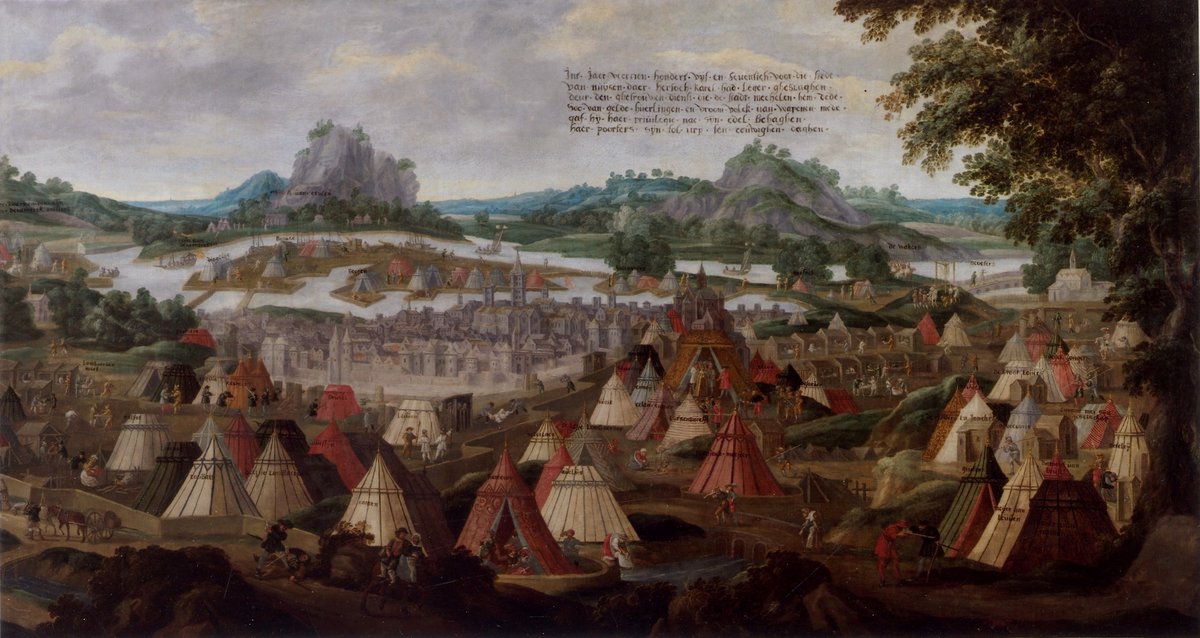

But this didn't deter Charles the Bold as he led his large army into Vaud to deal with the hated Swiss.
On 28 February 1476 he conquered the castle of Grandson after the Swiss garrison surrendered in face of overwhelming Burgundian army and its powerful artillery!
On 28 February 1476 he conquered the castle of Grandson after the Swiss garrison surrendered in face of overwhelming Burgundian army and its powerful artillery!

The mass execution of the Swiss garrison of Grandson!
Despite their surrender, Charles the Bold had all of the captured Swiss soldiers executed by hanging or drowning them in Lake Neuchâtel.
No mercy was shown as the Burgundian duke wanted to send a message to his enemies.
Despite their surrender, Charles the Bold had all of the captured Swiss soldiers executed by hanging or drowning them in Lake Neuchâtel.
No mercy was shown as the Burgundian duke wanted to send a message to his enemies.

But the Swiss army was finally assembled and was approaching fast.
They were too late to relieve the siege of Grandson but the warlike Swiss were determined to face the Burgundian army in an open battle.
This battle would follow soon!
They were too late to relieve the siege of Grandson but the warlike Swiss were determined to face the Burgundian army in an open battle.
This battle would follow soon!

Both armies numbered around 20,000 men.
The Burgundian army was seen as more powerful as the Swiss were almost entirely infantry with no artillery.
However the Swiss had mastered pike tactics with which they could fend off enemy cavalry.
The Burgundian army was seen as more powerful as the Swiss were almost entirely infantry with no artillery.
However the Swiss had mastered pike tactics with which they could fend off enemy cavalry.
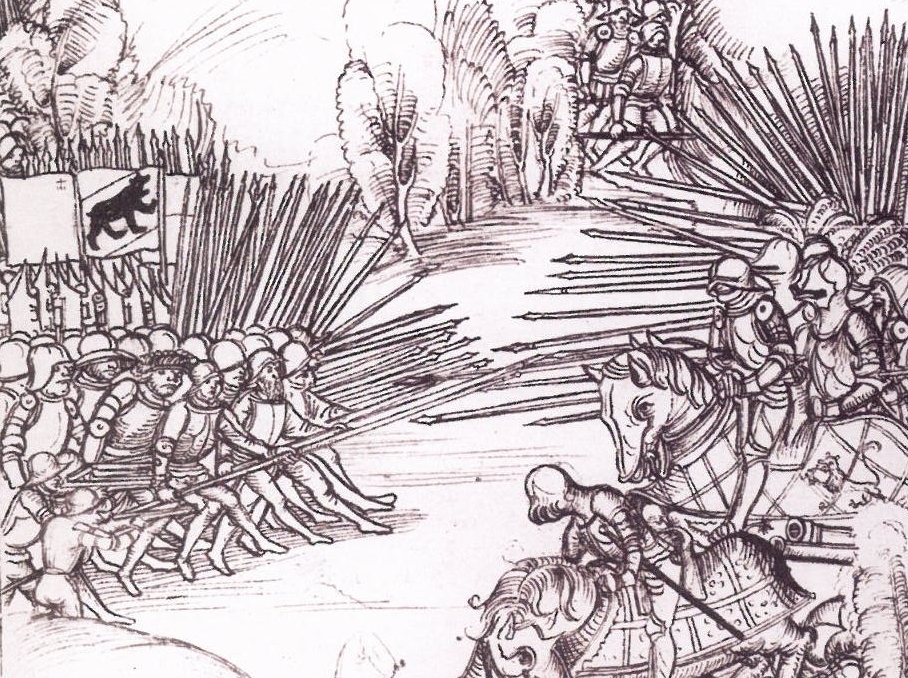
Furthermore the Swiss had a very aggressive warlike spirit which influenced their tactics. They were not just using their pike tactics defensively but also offensively.
They had great cohesion and discipline in their ranks, and were mentally well prepared for warfare.
They had great cohesion and discipline in their ranks, and were mentally well prepared for warfare.

In many ways, the battle of Grandson exposed many flaws of late medieval Western warfare.
An army which was made out of various different units couldn't work together as a cohesive force and lost to a disciplined army that could coordinate better and fight more effectively.
An army which was made out of various different units couldn't work together as a cohesive force and lost to a disciplined army that could coordinate better and fight more effectively.

Charles the Bold also ignored all advise and chose the most aggressive plan, wanting to defeat the enemy as quickly as possible.
He moved forward towards the town of Concise, abandoning his favorable position.
But he had poor scouting and didn't even know the Swiss position.
He moved forward towards the town of Concise, abandoning his favorable position.
But he had poor scouting and didn't even know the Swiss position.

Suddenly, the Burgundians saw the Swiss vanguard advancing from the forest.
The Burgundian heavy cavalry attacked them immediately but the Swiss were able to hold off the cavalry attack with their pikes, guarding the path and waiting for the rest of their army to arrive.

The Burgundian heavy cavalry attacked them immediately but the Swiss were able to hold off the cavalry attack with their pikes, guarding the path and waiting for the rest of their army to arrive.


It is said that the Burgundian cavalry attacked so rashly because the mistook the Swiss praying before battle for surrender and wanted to kill them anyway, just like the garrison of Grandson which had surrendered.
But the Swiss were ready and organized themselves in time.
But the Swiss were ready and organized themselves in time.

Neither side was willing to take prisoners in this war and no mercy would be shown to captives.
The Swiss were commoners and could not be ransomed like rich nobles, while the Swiss themselves had a no prisoners approach which I explained in this thread.
The Swiss were commoners and could not be ransomed like rich nobles, while the Swiss themselves had a no prisoners approach which I explained in this thread.
https://twitter.com/LandsknechtPike/status/1532903267050704897
Seeing his cavalry in trouble, Charles the Bold tried to arrange his troops and put his artillery to better use.
Infantry was ordered to pull back so that artillery could fire.
But poor communication in his army resulted in some Burgundian soldiers mistaking this for retreat.
Infantry was ordered to pull back so that artillery could fire.
But poor communication in his army resulted in some Burgundian soldiers mistaking this for retreat.

Panic and chaos ensued further as the Burgundians saw the bulk of the Swiss army approaching behind the vanguard.
The Swiss infantry attack was so quick that the Burgundians couldn't use their artillery.
The Burgundians started to rout in face of this terrifying Swiss charge!
The Swiss infantry attack was so quick that the Burgundians couldn't use their artillery.
The Burgundians started to rout in face of this terrifying Swiss charge!
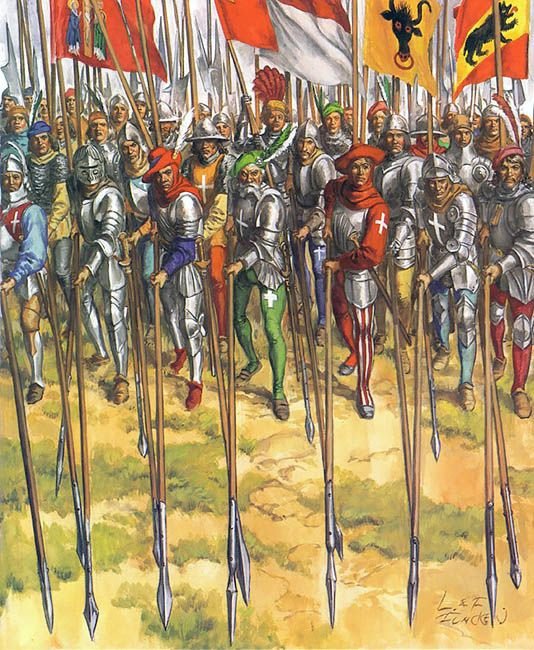
Charles the Bold tried to rally his troops to stand and fight, but nothing could prevent a full flight at this point.
The battle was turning into a disaster for the Burgundians and resulted in a humiliating retreat.
Charles the Bold had no choice but to flee as well!
The battle was turning into a disaster for the Burgundians and resulted in a humiliating retreat.
Charles the Bold had no choice but to flee as well!

While the Burgundians had very few losses due to Swiss not having the cavalry to run down and kill the fleeing troops, the defeat at Grandson significantly damaged their reputation.
The worst was the loss of Charles' personal treasures he had in his camp which fell to the enemy.
The worst was the loss of Charles' personal treasures he had in his camp which fell to the enemy.
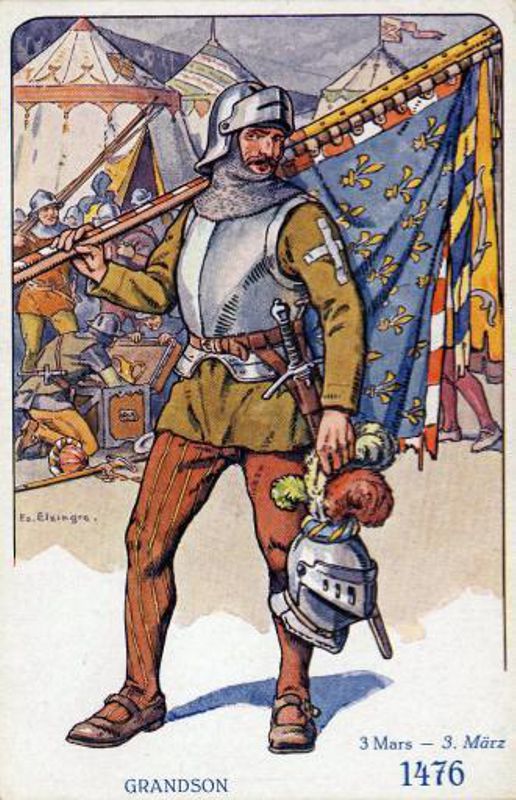
The victorious Swiss loot the Burgundian camp!
The vain Charles the Bold carried treasures of immense wealth with him on campaigns. Jewels, diamonds and many priceless artifacts fell into Swiss hands!
As one chronicler said, the Duke "lost his honor and his wealth in one day."
The vain Charles the Bold carried treasures of immense wealth with him on campaigns. Jewels, diamonds and many priceless artifacts fell into Swiss hands!
As one chronicler said, the Duke "lost his honor and his wealth in one day."

The spoils of war!
This image from a Swiss chronicle depicts the treasures taken from Charles the Bold's tent.
Objects of immense value ended up in a modest Swiss house.
This image from a Swiss chronicle depicts the treasures taken from Charles the Bold's tent.
Objects of immense value ended up in a modest Swiss house.

• • •
Missing some Tweet in this thread? You can try to
force a refresh



